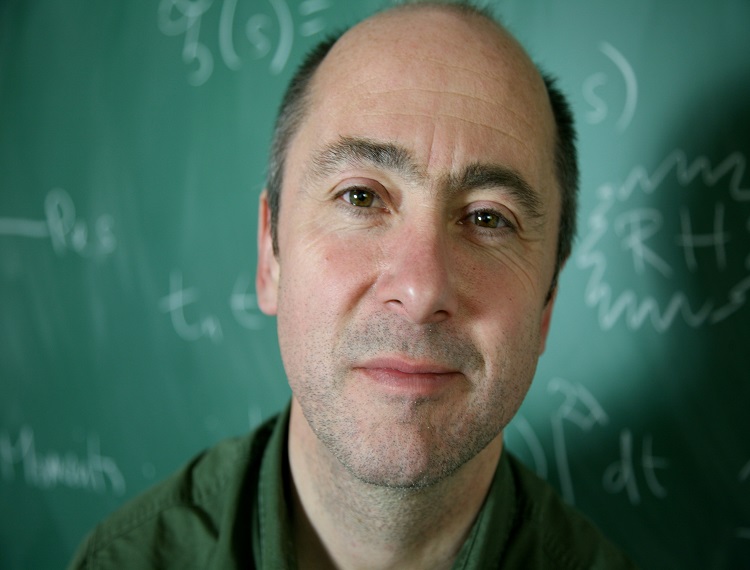A chance to celebrate the wonder of mathematics and its contribution to society

Maths week, which takes place 8-15 November this year, is a chance to celebrate the wonder of mathematics and its contribution to society.
That’s something the Protect Pure Maths campaign has been doing since its inception earlier this year. Established to promote all branches of maths and protect the subject from budget cuts the campaign has enjoyed a string of successes, enlisting a long list of supporters including celebrities, high profile mathematicians, and higher education institutions.
Maths matters because it’s a subject that has an uncanny ability to solve problems that do not yet exist. The Nobel Prize-winning physicist Eugene Wigner called this the “unreasonable effectiveness of mathematics”. He described, for example, how “very scanty observations” about an apple falling from a tree led to our understanding of an entire dynamic planetary framework.
As the world gathers in Glasgow to ponder solutions to the climate crisis could mathematicians grappling with apparently unrelated equations and calculations stumble upon some answers?
It is maths that underpins innovations in artificial intelligence, quantum computing, driverless cars and superfast broadband.
Its contribution to computer modelling of the Covid-19 outbreak and the roll-out of vaccinations has been invaluable. And it is also central to national security, through the work of GCHQ, the communications monitoring centre.
It is estimated that maths currently brings more than £200 billion per year to the UK economy, or 10 per cent of GDP.
And yet there was not a mention of maths or mathematics in Chancellor Rishi Sunak’s Budget last month. An omission all the more odd given the government has previously indicated it recognises the value of maths.
One of its first acts following the 2019 election victory was a to promise a £300 million uplift in funding to support “experimental and imaginative mathematical sciences” research.
Over £100 million of that money has been delivered. It has allowed many more students to embark on further programmes of study, including PhDs.
But recent responses to parliamentary questions give cause for concern. While ministers point to the funding already provided they are more cagey when it comes to confirming the rest will be forthcoming. The Chancellor must confirm his commitment to the mathematical sciences.
For the full funding is totemic, not just for maths but for all subjects that require time and money to deliver their benefits to society, knowledge and the economy. There have recently been cuts to Mathematics at the University of Leicester (and to other subjects there), as well as to languages at Aston University and archaeology at the University of Sheffield.
These pressures on universities are a growing trend globally, too. Macquarie University in Sydney, for example, has slated maths and science courses for closure.
The maths cuts come despite the subject’s enormous popularity in secondary schools – it is the most popular A level – and its stable enrolment numbers at undergraduate level.
The problem lies in the disparate departmental fortunes that the overall figures disguise; while student numbers in certain mathematics departments have grown considerably over the past decade – some have doubled or even trebled – maths departments elsewhere have seen dramatic reductions.
And while some vice-chancellors may see this decline as just a short-term fluctuation in the student market, others may see in it a trend and, in the constrained Covid environment, make hasty and brutal cuts. That is especially true if they have overextended themselves with ambitious building programmes based on assumed large numbers of overseas students.
In these circumstances the Protect Pure Maths campaign believes the government should step in to protect the longer-term interests of the country, supporting parts of the intellectual economy that struggle in the short term but provide profound, as yet unknowable returns in the future.
But we also appeal to vice-chancellors not to vandalise departments that have done exceptionally well for decades based on near-term considerations. Remember that the world’s leading universities all have mathematics departments, and that maths infrastructure cannot easily be reconstituted years down the line.
Despite Sunak’s good intentions, the unprecedented scale of the bill for “building back better” post-Covid could jeopardise the £300 million funding for maths. But if ministers are serious about levelling up, they should remember that mathematics is one of the most inclusive subjects. It would not serve social diversity if it was impossible to study a core subject like mathematics at higher levels in some geographical areas.
As academic guardians of the country’s nascent intellectual property, we must make the case for maintaining the longer view, so that the UK remains both a prosperous nation and a maths superpower.
Maths Week seems as good a time as any for the Chancellor to confirm that he dropped maths from his Budget speech for no other reason than economy of time and words, and that the funding promised by this administration nearly two years ago will be forthcoming imminently and in full.
By Jon Keating, spokesperson for the Protect Pure Maths Campaign, president of the London Mathematical Society and Sedleian Professor of Natural Philosophy at the University of Oxford.











Responses